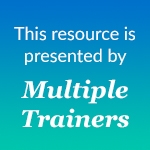

Search Results: needs
-
Jim and Jori offer practical tools to help us develop patience through a process they call WAIT: Wake up, Accept, Insight, Take a step.
-
- Discover what is yours to do in response to our global crises
- Weave nonviolence more deeply into how you live and lead
- Receive ongoing support in how to be effective and alive while pursuing your highest goals
- Increase your capacity to face and mourn current reality as a source of greater choice and energy
- Be a part of transforming the legacy of scarcity, separation, and powerlessness into a livable future
-
- Discover what is yours to do in response to our growing global crises
- Weave nonviolence more deeply into how you live and lead
- Receive ongoing support within and beyond the course in how to be effective and alive while doing what’s yours to do
- Increase your capacity to face and mourn current reality as a source of greater choice and energy
- Be a part of transforming the legacy of scarcity, separation, and powerlessness into a livable future
-
- Do you know what is yours to do in response to our growing global crises?
- Is nonviolence woven as deeply as you want it into how you live and lead?
- Have you ever experienced what it’s like to participate in an interdependent web of mutual support to fully embody our commitments?
- Are you familiar with how to bring yourself back again and again to aligning with purpose in every moment?
- Do you see yourself as part of transforming the legacy of scarcity, separation, and powerlessness into a livable future?
-
Trainer Tip: Have you ever noticed how often we back up when we find ourselves in a conflict? Or how much we try to pull away when someone is angry or in emotional pain?
-
Trainer Tip: Find ways to celebrate each day and enrich your life.
-
Gain practical skills to navigate organizational differences and foster collaboration.
-
Much like other asymmetric relationships (such as therapist and client), there are complications related to power dynamics that can arise with any NVC trainer having sex with a participant. For one, there's (counter)transference. And there's potential for things that may not move outside this asymmetric relationship -- such as projections where the participant, and/or the trainer, is guided by un-healed pain of their "inner child".
-
Trainer tip: Do you get into “right fights”? You know you’re in one when you’re arguing with somebody in order to be right or because you want to win. What needs do I hope to meet from winning or being right? Notice if you enter into a right fight today and shift your focus to your needs and connecting with the other person's needs.
-
Two NVC trainers went into dangerous, war torn territory to share the skills they found so valuable but end up learning that they need to first apply those skills before those they came to help could receive what they had to offer. Only when the foundation of connection and trust was built could they mediate the conflicts using empathic communication.
-
John introduces his Self-Connection Exercise as a mindful way of coming to awareness via OFNR. Breath: immediately observable, a reminder to observe. Body: feeling the body, awareness of sensations. Needs: an experience of wholeness that expands awareness of the totality of experience. Listen.
-
- Wish you knew how to align your organization with its purpose and values?
- Want to increase your capacity to live in integrity with your values, too?
- Concerned about the level of engagement within your organization?
- Yearn to connect to a sense of meaning in your life during this time of global crises?
- Long to discover what is yours to do – and wish you knew how to leverage the resources you have in response to what is needed?
-
-
Trainer Tip: If you're doing personal growth work, and changing your behaviors, you may find yourself wanting others to join your efforts with similar levels of enthusiasm. When they don't do so, you may feel frustrated and place judgments on them, thinking they aren't as caring. You'll be less likely to feel disappointed in people if you remind yourself that when you do personal growth work, what needs you are meeting for yourself.
-
Trainer Tip: Censoring oneself to maintain peace may seem easier, but it actually requires significant energy. You can free up that energy you use to deny and stuff down your feelings, needs, desires, truth, and figure out and adjust to what others want. Embracing authenticity and expressing true feelings and needs can lead to a liberating experience, unlocking joy, love, and endless possibilities.
-
Sylvia Haskvitz shares NVC basics to help you improve understanding and connection.
-
Learn how your inner relationship forms the basis for Focusing and NVC.
-
Practice real-life NVC dialogue and role-play to master the dance of authentic communication.
-
Explore joy through gratitude with Kathleen—stay present even amid life’s challenges.
-
Join CNVC Certified Trainers Jeff Brown, Jean Morrison, Karl Steyaert, Kathleen Macferran, Mary Mackenzie and Sylvia Haskvitz in a lively Q&A session focusing on naturalizing NVC into our daily interactions.

Quick Links
Subscription Preferences
Stay In Touch!
Looking for ways to keep up with NVC Academy news, get special offers, free resources, or words of inspiration? Here are five ways to stay engaged:


















